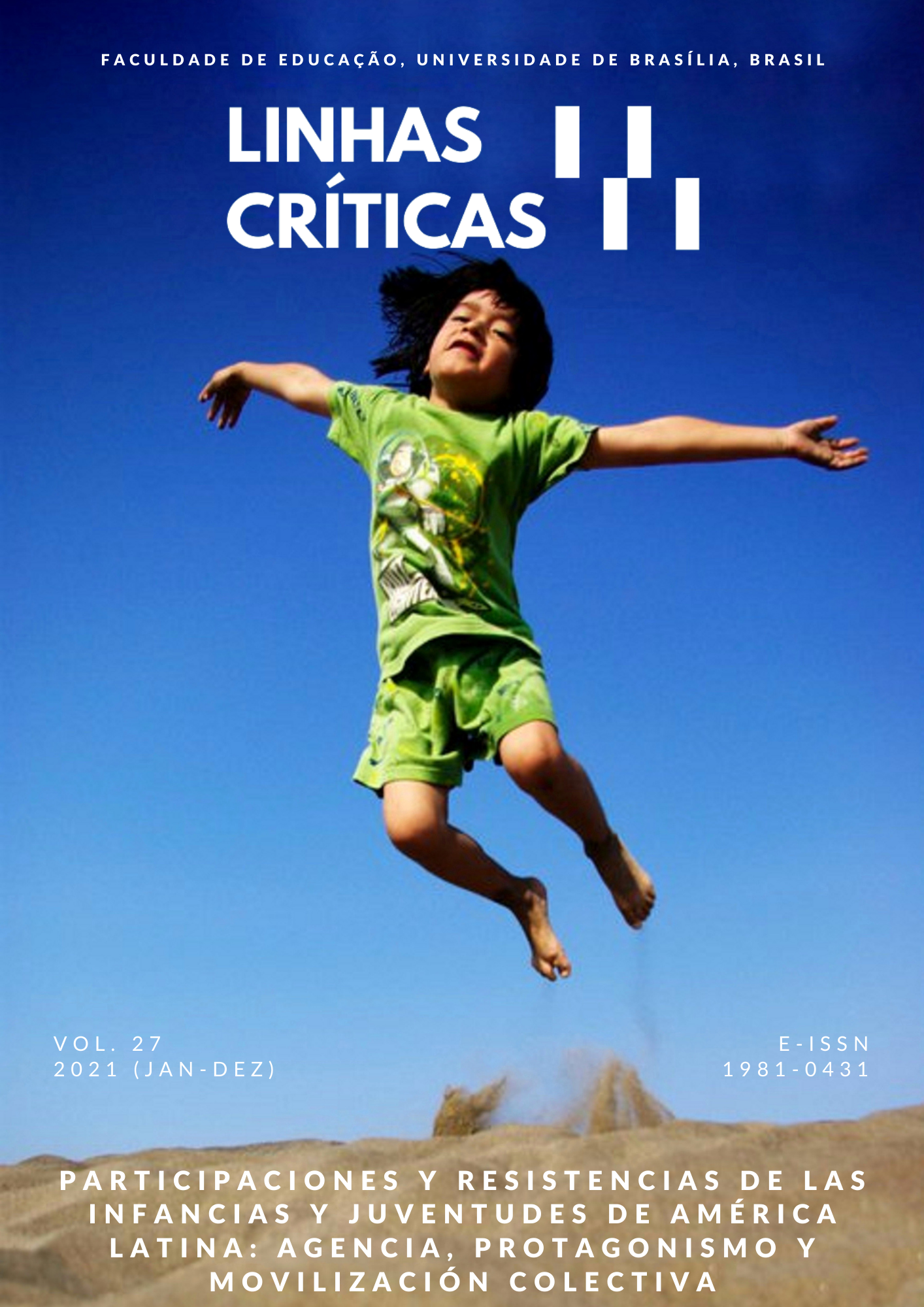Information and communication technologies as a pedagogical tool in higher education
DOI:
https://doi.org/10.26512/lc27202139110Keywords:
ICTs, Pedagogical practices, Higher education, Information systemsAbstract
This article presents an excerpt from a research that aimed at studying the discourses of teachers about the use of Information and Communication Technologies (ICTs) in classroom as an artifact of pedagogical support for Higher Education. The empirical corpus includes the speeches of 23 subjects who teach in Information Systems courses at three Higher Education Institutions in Rio Branco, Acre, Brazil. The analysis of the empirical revealed a formative vulnerability that leaves them insecure to expose aspects of their occupation and elements that characterize their performance in classroom.
Downloads
References
Alhassan, M. D., & Adam, I. O. (2021). The effects of digital inclusion and ICT access on the quality of life: a global perspective. Technology in Society, 64, e101511. https://doi.org/10.1016/j.techsoc.2020.101511
Auler, D. (2007). Enfoque ciência-tecnologia-sociedade: pressupostos para o contexto Brasileiro. Ciência & Ensino, 1, número especial.
Barbosa, L., & Bazzo, W. (2013). O uso de documentários para o debate ciência-tecnologia-sociedade (CTS) em sala de aula. Revista Ensaio, 15(3), 149-161. https://doi.org/10.1590/1983-21172013150309
Bencze, J. L., Carter, L., & Krstovic, M. (2014). Science & technology education for personal, social & environmental wellbeing: challenging capitalists’ consumerist strategies. Revista Brasileira de Pesquisa em Educação em Ciências, 14(2), 039–056. https://periodicos.ufmg.br/index.php/rbpec/article/view/4348/2914
Camargo, B. V., & Justo, A. M. (2013). IRaMuTeQ: um software gratuito para análise de dados textuais. Temas em Psicologia, 21(2), 513-518. http://doi.org/10.9788/TP2013.2-16
Cardoso, M. J. C., Almeida, G. D. S., & Silveira, T. C. (2021). Formação continuada de professores para uso de tecnologias da informação e comunicação (TIC) no Brasil. Revista Brasileira de Informática na Educação, 29, 97-116. https://doi.org/10.5753/RBIE.2021.29.0.97
Cunha, M. I. (2016). Inovações na educação superior: impactos na prática pedagógica e nos saberes da docência. Em Aberto, 29(97), 87-101. http://rbep.inep.gov.br/ojs3/index.php/emaberto/article/view/3172
Cunha, M. I. (2018). Docência na educação superior: a professoralidade em construção. Educação, 41(1), 6-11. https://doi.org/10.15448/1981-2582.2018.1.29725
Freire, P. (1987). Pedagogia do oprimido (17 ed.). Paz e Terra.
Freire, P. (1996). Pedagogia da autonomia (25 ed.). Paz e Terra.
Habowski, A. C., & Conte, E. (2018). Cultura digital versus autoridade pedagógica: tendências e desafios. Linhas Críticas, 24, 494-517. https://doi.org/10.26512/lc.v24i0.18993
Linsingen, I. von. (2017). Perspectivas curriculares CTS para o ensino de engenharia: uma proposta de formação universitária. Linhas Críticas, 21(45), 297–317. https://doi.org/10.26512/lc.v21i45.4536
Masetto, M. T. (Ed.). (1998). Docência na universidade. Papirus.
Masetto, M. T. (2003). Competência pedagógica do professor universitário. Summus.
Masetto, M. T. (2007). Docência universitária: repensando a aula. Em M. F. Vasconcellos, & A. Teodoro. (Eds.). Ensinar e aprender no ensino superior: por uma epistemologia pela curiosidade da formação universitária (2 ed.). Cortez.
Moran, J. M. (2006). A educação que desejamos: novos desafios e como chegar lá. Papirus.
Orlandi, E. P. (2003). A linguagem e seu funcionamento: as formas do discurso (4 ed.). Pontes.
Orlandi, E. P. (2009). Análise de discurso: princípios e procedimentos (8 ed.). Pontes.
Pêcheux, M. (1975). Análise automática do discurso (AAD-1969). Em F. Gaget, & T. Hak (Eds.). Por uma análise automática do discurso: uma introdução à obra de Michel Pêcheux (pp. 59-158, tradução de E. P. Orlandi). Unicamp.
Pizzutti, T. C., & Alves, J. A. P. (2017). Elementos CTS nas aulas de professores formadores no ensino superior. Anais do XI Enpec, Florianópolis, Santa Catarina, Brasil. http://www.abrapecnet.org.br/enpec/xi-enpec/anais/resumos/R1014-1.pdf
Published
How to Cite
Issue
Section
License
Copyright (c) 2021 Breno Cavalcante do Nascimento, Rafael Dias Araújo, Francisco Sidomar Oliveira da Silva, Aline Andréia Nicolli

This work is licensed under a Creative Commons Attribution 4.0 International License.
Authors who publish in this journal agree to the following terms:
-Authors maintains the copyright and grants the journal the right of first publication, the work being simultaneously licensed under the Creative Commons Attribution License which allows the sharing of the work with recognition of the authorship of the work and initial publication in this journal.
- Authors are authorized to enter into additional contracts separately, for non-exclusive distribution of the version of the work published in this journal (eg publish in institutional repository or as a book chapter), with acknowledgment of authorship and initial publication in this journal.
-Authorers are allowed and encouraged to publish and distribute their work online (eg in institutional repositories or on their personal page) at any point before or during the editorial process, as this can generate productive changes as well as increase the impact and the citation of published work (See The Effect of Free Access).



